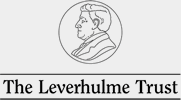The British Spouter or Stage Assistant (1773)
The British Spouter or Stage Assistant (1773) is a collection of prologues and epilogues transcribed as spoken by celebrated actors. There are no complete plays here – nor is knowledge of the play deemed necessary for the reading of these pieces. The subtitle of the collection gives a sense of the use of such a publication: "The Whole being intended to make Young Persons acquainted with the ART of SPEAKING, and to impress upon their Minds Sentiments of Morality."
The British Spouter represents one of the niches in the miscellany market that became increasingly prominent during the 1770s and 80s – the collection as elocution primer. The second half of the eighteenth century is the heyday of elocution. Reading out a written text became a popular art form, hobby, spectator sport, subject of academic enquiry, and topic of satire. Celebrity elocutionists such as Thomas Sheridan and John Walker emphasised the social and professional utility of speaking well in public, and "spouting clubs" were born, popular meetings in which would-be orators could practice their delivery and their debating skills. Some of these clubs evidently attracted a public audience, and involved theatrical performance – sometimes with unfortunate consequences. The Public Advertiser of 5 September 1764 records some messy spouting:
One Day last Week, while some Members of a Spouting Club, not far from Temple Bar, were exhibiting their talents to a large Audience, a top genius, in the last scene of Barbarossa, had like to have concluded his part rather too tragically, for, transported with all the fire of the person represented, he could not wait to be harmlessly assassinated, but threw himself upon his Antagonist"s Dagger, which being a real one, and very sharp, penetrated thro" his Waistcoat and Shirt, and drew Blood; the sight of which, in an Instant, dispell"d the fumes of Enthusiasm, and from an Indian Prince he sunk into his original Character, that of a Journeyman Barber.[1]
The title of The British Spouter speaks to this growing enthusiasm for oratory, and it links the art of learning to speak well to public theatrical performances. It is in part a reconstruction of historical performance: the pieces are introduced by author and speaker, often detailing the way in which the piece was staged. The prologue to She Stoops to Conquer was "spoken by Mr. Woodward, dressed in Black, and holding a Handkerchief to his Eyes." There is even more memorial reconstruction given for the Prologue to "The Trip to Portsmouth", which tells us: "Bell rings for the musick to stop. A short silence ensues; then a man, with a book in his hand, supposed to be the Prompter, runs upon the stage, after Mr. Weston has been called upon two or three times behind the scenes." The collection seems to have a dual function: it is both part of the burgeoning market in miscellanies used to teach or practise reading aloud, and it is also a souvenir of a celebrity event, giving its readers a taste of Garrick or Mrs Siddons as they really were onstage. As a miscellany, it is also interesting that for all the detailing of stage performance, the pieces are introduced not as drama but as poetry. The prologue and epilogue, it is claimed, can tempt the young into transports of literary delight: "In speaking a Prologue with a becoming Propriety, by laying an emphasis upon the most Striking Similes [...] Youth are led, as it were, insensibly into the love of Poetry, and the pleasing delusion steals upon the mind."
Dr Abigail Williams, University of Oxford
[1] Public Advertiser, 5 September, 1764, Issue 9316.




